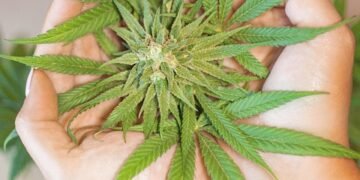The Green Revolution: Hemp’s Rise to Prominence in the Industrial Age
In recent years, there has been a significant shift towards sustainable and environmentally friendly practices in various industries. One of the key players in this « green revolution » is hemp. Hemp, a versatile and eco-friendly crop, has been gaining prominence in the industrial age due to its numerous benefits and applications. In this article, we will explore the rise of hemp in the industrial age and its potential to revolutionize various sectors.
What is Hemp?
Hemp, also known as industrial hemp, is a variety of the Cannabis sativa plant species that is grown specifically for industrial purposes. Unlike its cousin marijuana, hemp contains very low levels of THC, the psychoactive compound that gives marijuana its intoxicating effects. This makes hemp non-psychoactive and safe for a wide range of applications.
The History of Hemp
Hemp has a long history dating back thousands of years. It has been used for various purposes such as textiles, paper, food, and medicine. In fact, hemp was one of the first crops to be cultivated by humans and played a crucial role in the development of early civilizations. However, with the rise of synthetic materials and the prohibition of cannabis in the 20th century, hemp fell out of favor and was largely forgotten.
The Resurgence of Hemp in the Industrial Age
In recent years, there has been a renewed interest in hemp due to its eco-friendly and sustainable properties. Hemp is a fast-growing crop that requires minimal water, pesticides, and fertilizers to thrive. It can be grown in a wide range of climates and soil types, making it a versatile and adaptable crop. Additionally, hemp is biodegradable and can be used to produce a wide range of products such as textiles, paper, biofuels, building materials, and even food and supplements.
The Benefits of Hemp in the Industrial Age
There are numerous benefits to using hemp in the industrial age. Some of the key advantages of hemp include:
1. Sustainability
Hemp is a highly sustainable crop that can be grown without the need for harmful chemicals or excessive water. It helps to reduce carbon emissions and promote soil health, making it an environmentally friendly alternative to traditional crops.
2. Versatility
Hemp is an incredibly versatile crop that can be used to produce a wide range of products. From textiles and paper to biofuels and building materials, hemp has endless applications in various industries.
3. Economic Benefits
The cultivation and processing of hemp can create jobs and stimulate economic growth in rural communities. Hemp has the potential to become a lucrative and sustainable industry that can benefit both farmers and consumers.
The Future of Hemp in the Industrial Age
As we move towards a more sustainable and eco-friendly future, hemp is poised to play a key role in the industrial age. With its numerous benefits and applications, hemp has the potential to revolutionize various sectors such as agriculture, textiles, construction, and energy. By harnessing the power of hemp, we can create a more sustainable and prosperous future for generations to come.
Conclusion
The green revolution is well underway, and hemp is at the forefront of this movement. With its sustainable properties, versatile applications, and economic benefits, hemp is poised to become a key player in the industrial age. By embracing hemp and incorporating it into our daily lives, we can help create a more sustainable and eco-friendly future for all.
Let’s harness the power of hemp and pave the way for a greener and more prosperous world.




















![The Mind-Blowing Effects of [Cannabis Strain]](https://cannabisdailyguide.com/wp-content/uploads/2025/10/tree-4138799_960_720-360x180.jpg)














































